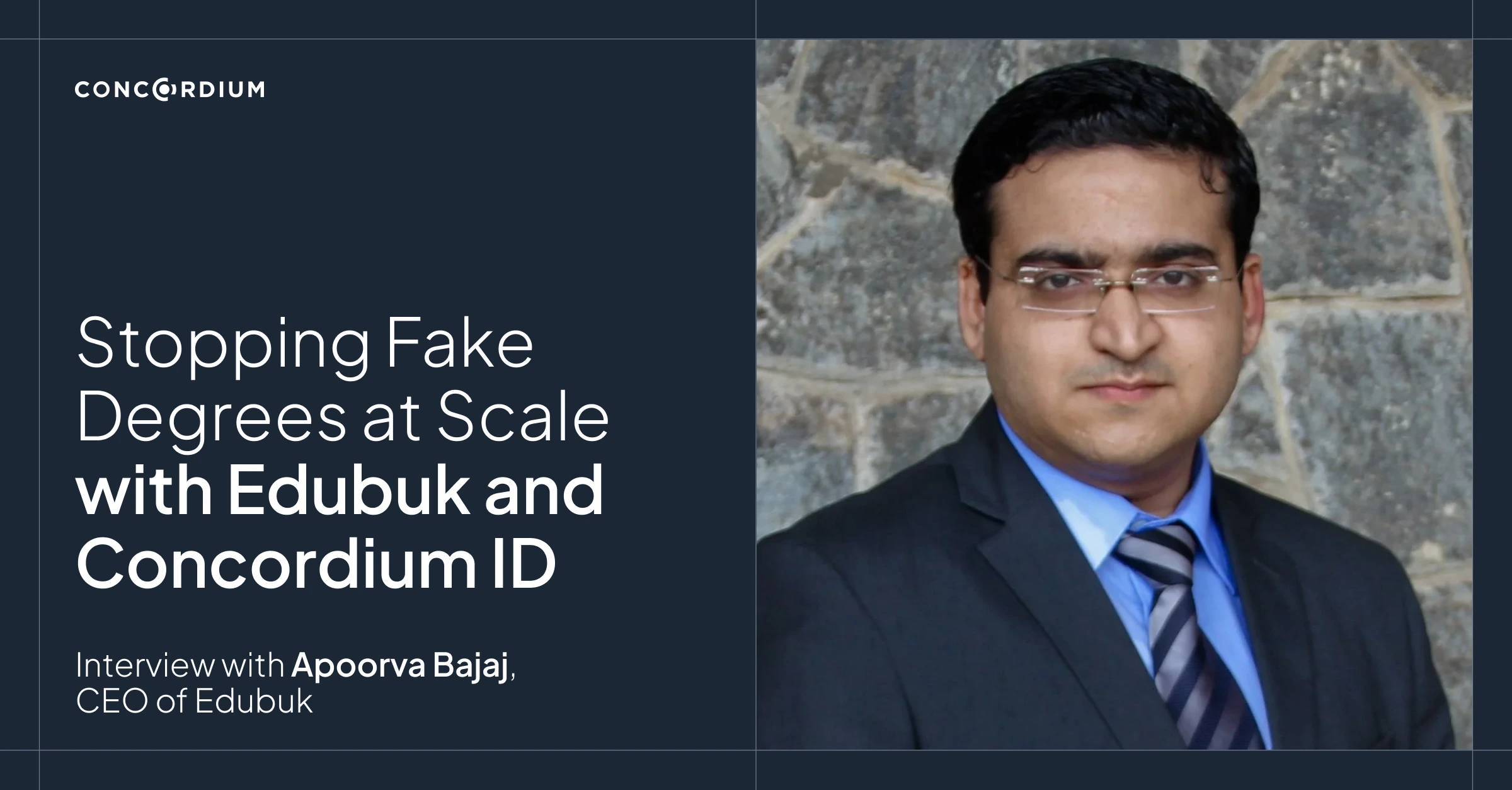The rise of fake credentials has become a serious issue for both learners and academic institutions. While the online learning boom has made it easier for people to gain new skills, it has also made it easier for bad actors to create and sell fraudulent certificates. The trade in fake diplomas is estimated at around seven billion dollars each year. And employers are spending large sums on 3rd-party credential verification services, sometimes paying more than £74 for a single basic check, and the costs are going up. When learners cannot reliably prove what they’ve achieved, and employers cannot trust what they see, the entire education system suffers.
Edubuk aims to counter this by giving students, academic institutions and employers the ability to issue and verify academic and professional credentials. Their platform offers courses in emerging technologies, blockchain-verified certificates, and AI-driven job-matching tools that help learners connect their skills to real opportunities. At the center of their system is eSeal, a tool that allows institutions to issue tamper-proof certificates on the blockchain.
To learn more about the technology and why Edubuk chose Concordium as its base layer, we spoke with Apoorva Bajaj, Co-Founder and CEO of Edubuk.
Q: Briefly explain Edubuk’s mission and how it aligns with Concordium’s privacy-first approach?
Apoorva Bajaj: Edubuk’s mission is to provide tamper-proof, verifiable academic and professional credentials on the blockchain, ensuring transparency and trust in education and employment. It became clear that Concordium’s immutable, transparent, but privacy-first approach aligns well with our mission to verify documents as it enables secure, identity-verified transactions while complying with data protection regulations like GDPR.
Q: Why did Edubuk choose Concordium, and how is its zero-knowledge proof identity layer used in your products?
Apoorva Bajaj: Edubuk chose Concordium because of its built in identity layer, zero-knowledge proofs, and strong focus on compliance with privacy regulations like GDPR. These features make it an ideal blockchain for storing and verifying sensitive educational credentials without exposing user privacy. The same zero-knowledge proof identity layer is used in Edubuk’s eSeal product to verify users and ensure that certificates are issued and checked by legitimate entities while maintaining user privacy and meeting compliance requirements.
Q: You’re about to reach your set target of 10,000 certificates by year-end, how does Concordium support your long-term vision?
Apoorva Bajaj: 10,000 verifiable certificates on Concordium’s scalable and low-cost infrastructure is only the beginning. As we grow, we will explore advanced features like age verification and access controls using Concordium’s identity framework to enable more customized and compliant credential verification workflows across regions and sectors.
Q: Are there any features or tech enhancements you’d like to see from Concordium that could accelerate Edubuk’s growth?
Apoorva Bajaj: We would welcome enhanced support for smart contract customization with built-in identity checks and more developer tools for streamlined integration. Additionally, easier interoperability with other chains and storage solutions would further strengthen Edubuk’s ability to scale across ecosystems and serve diverse institutional partners globally.
Q: Many institutions see blockchain as complex or risky. How does eSeal make adoption easy, and what role does Concordium play?
Apoorva Bajaj: eSeal simplifies blockchain adoption by offering a user-friendly interface where institutions can issue tamper-proof certificates without needing blockchain expertise. Concordium’s infrastructure plays a key role by ensuring every transaction is compliance-ready by design, with built-in identity and privacy safeguards, easing compliance concerns for educational institutions.
Q: How have educational institutions responded to the regulatory alignment of using Concordium?
Apoorva Bajaj: In discussions with educational institutions, we’ve emphasized that Concordium’s privacy-first design, GDPR alignment, and identity verification capabilities address key regulatory concerns. Institutions have responded positively, recognizing that using Edubuk’s eSeal powered by the Concordium blockchain ensures secure, auditable, and legally aligned credential issuance.
Q: Do you see opportunities for Edubuk to contribute to Concordium’s roadmap–say, by building identity standards, education modules or data modules for Web3 credentials?
Apoorva Baja: Absolutely. Edubuk can contribute by co-developing education-focused identity standards and modular frameworks for verifiable Web3 credentials on Concordium. We also see potential in building education modules to onboard institutions and learners into the Web3 ecosystem, using Concordium’s identity and compliance features as the backbone.
Q: TruCV was recently launched on Concordium. What does it do, and what’s next?
Apoorva Bajaj: TruCV enables users to create fully verifiable, tamper-proof CVs on the blockchain, with all credentials linked and validated on-chain. It ensures authenticity, privacy, and compliance, empowering employers to trust candidate profiles instantly and reducing reliance on manual and third-party background verification. TruCV will also integrate with Edubuk’s upcoming EBUK utility token, which powers transactions across our credentialing ecosystem. The token will be used for issuing, verifying, and accessing value-added services, creating a self-sustaining, incentive-driven model for learners, institutions, and employers.

Apoorva Bajaj is the co-founder and CEO of Edubuk. He works at the intersection of AI, blockchain, finance, and education, building products that support secure credential verification and training in new technologies. Under his leadership, Edubuk has secured early investment and gained international attention.
Find out more about Concordium ID.
Join the PayFi revolution, follow us on X.


